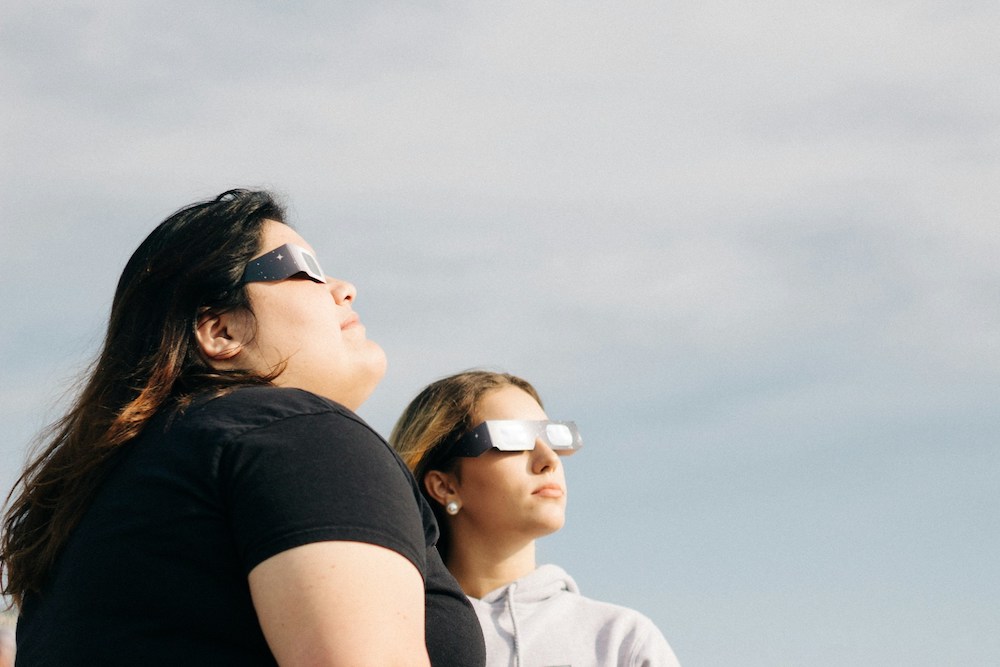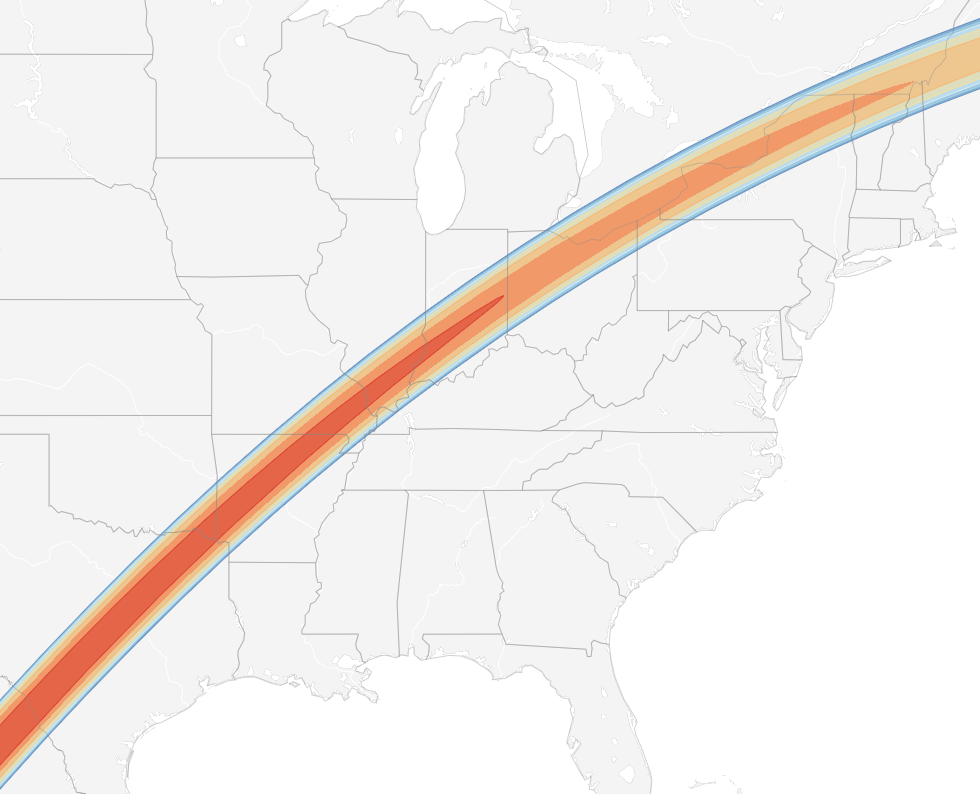
- Details
- By Kaili Berg
North America will witness a rare celestial event on Monday: a total solar eclipse. As the moon positions itself between the sun and Earth, casting a shadow on our planet, millions will watch the sky darken like the onset of dawn or dusk.
The event’s distinction lies in the totality of its path, spanning from Mexico to Canada, as well as its profound cultural significance, especially for Indigenous people.
Thanks to technology like cameras and live streaming, even if you cannot view the solar eclipse in one of the optimal spots along the path, you can still experience the eclipse with others from all over the world. Eclipses have been important to cultures throughout history, so this gives a chance to connect with that history and appreciate the wonders of the universe together.
While the prospect of witnessing such a rare event is exciting, it's also a moment to reflect on the cultural and historical significance that eclipses hold for different communities, particularly among Indigenous people.
Native American tribes have their own unique stories and traditions surrounding eclipses, passed down through generations. These stories often blend mythology with astronomical observation, providing insights into how ancient cultures interpreted celestial phenomena.
For example, the Cherokee people tell a story about a frog swallowing the Sun, while the Chickasaw have a similar tale featuring a black squirrel. These tales aren't just stories; they're vital cultural symbols that uphold beliefs and traditions within Indigenous communities.

Erin Fehr (Yup’ik), Assistant Director and Archivist at the University of Arkansas Little Rock’s Sequoyah National Research Center, offers valuable insights into the mythology and beliefs surrounding eclipses among several Native American tribes.
Related: Native Bidaské with Erin Fehr on What Eclipses Mean to Various Tribes
Centuries of Indigenous Knowledge Found Along the Path of the Total Solar Eclipse
"Each tribe has its own interpretations and rituals associated with eclipses," Fehr told Native News Online. "These beliefs reflect the deep connection between Indigenous peoples and the natural world."
Among the various tribes, the Navajo Nation has a particularly profound reverence for eclipses. For the Navajo, an eclipse is a sacred time for introspection and renewal. Traditionally, Navajo families remain indoors during an eclipse, refraining from eating or drinking as they engage in quiet reflection and meditation.
In addition to cultural significance, the April 8, 2024 eclipse holds practical importance for Indigenous communities along its path of totality. Several Tribal Nations, including the Navajo Nation, the Cherokee Nation, the Mohawk Nation, and the Cree Nation, will be directly in the eclipse's trajectory. For these communities, witnessing the eclipse is not just a celestial event; it's an opportunity to connect with their ancestral lands and traditions on a deeply spiritual level.
While the allure of witnessing an eclipse is undeniable, it's crucial to prioritize safety during this celestial event. Here are some essential tips to ensure a memorable and secure viewing experience:
- Protective Eyewear: Never look directly at the sun without certified solar viewing glasses. Regular sunglasses are not sufficient to shield your eyes from harmful solar radiation.
- Pinhole Projector: Create a simple pinhole projector to indirectly view the eclipse. This safe and inexpensive method projects the sun's image onto a surface, allowing you to observe the eclipse without risking eye damage.
- Avoid Unprotected Cameras: Refrain from pointing cameras, telescopes, or binoculars directly at the sun without proper solar filters. Doing so can cause irreversible damage to your equipment and eyes.
- Monitor Children and Pets: Keep a close watch on children and pets during the eclipse, ensuring they use protective eyewear or participate in safe viewing activities.
- Be Mindful of Surroundings: Choose a safe viewing location away from hazards like traffic or uneven terrain. Stay aware of your surroundings to prevent accidents while immersed in the eclipse's splendor.
If you’re observing the solar eclipse on Monday, share your comments, photos, or videos on our social media channels, including Facebook, TikTok, Twitter, and Instagram.
More Stories Like This
Native News Weekly (August 25, 2024): D.C. BriefsNavajo Nation Mourns the Passing of Former Vice President Rex Lee Jim
Deb Haaland Earns Endorsement From Communications Workers of America Local 7076
University Soccer Standout Leads by Example
Two Native Americans Named to Democratic Congressional Campaign Committee's“Red to Blue” Program
Help us defend tribal sovereignty.
At Native News Online, our mission is rooted in telling the stories that strengthen sovereignty and uplift Indigenous voices — not just at year’s end, but every single day.
Because of your generosity last year, we were able to keep our reporters on the ground in tribal communities, at national gatherings and in the halls of Congress — covering the issues that matter most to Indian Country: sovereignty, culture, education, health and economic opportunity.
That support sustained us through a tough year in 2025. Now, as we look to the year ahead, we need your help right now to ensure warrior journalism remains strong — reporting that defends tribal sovereignty, amplifies Native truth, and holds power accountable.
 The stakes couldn't be higher. Your support keeps Native voices heard, Native stories told and Native sovereignty defended.
The stakes couldn't be higher. Your support keeps Native voices heard, Native stories told and Native sovereignty defended.
Stand with Warrior Journalism today.
Levi Rickert (Potawatomi), Editor & Publisher


